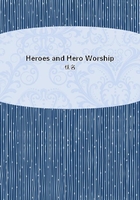
第53章
The elegant Pagan, by this fire-decree of his, had kindled into noble just wrath the bravest heart then living in this world. The bravest, if also one of the humblest, peaceablest; it was now kindled. These words of mine, words of truth and soberness, aiming faithfully, as human inability would allow, to promote God's truth on Earth, and save men's souls, you, God's vicegerent on earth, answer them by the hangman and fire? You will burn me and them, for answer to the God's-message they strove to bring you? You are not God's vicegerent; you are another's than his, I think! I take your Bull, as an emparchmented Lie, and burn _it_. _You_ will do what you see good next: this is what I do.--It was on the 10th of December, 1520, three years after the beginning of the business, that Luther, "with a great concourse of people," took this indignant step of burning the Pope's fire-decree "at the Elster-Gate of Wittenberg." Wittenberg looked on "with shoutings;" the whole world was looking on. The Pope should not have provoked that "shout"! It was the shout of the awakening of nations. The quiet German heart, modest, patient of much, had at length got more than it could bear. Formulism, Pagan Popeism, and other Falsehood and corrupt Semblance had ruled long enough: and here once more was a man found who durst tell all men that God's-world stood not on semblances but on realities; that Life was a truth, and not a lie!
At bottom, as was said above, we are to consider Luther as a Prophet Idol-breaker; a bringer-back of men to reality. It is the function of great men and teachers. Mahomet said, These idols of yours are wood; you put wax and oil on them, the flies stick on them: they are not God, I tell you, they are black wood! Luther said to the Pope, This thing of yours that you call a Pardon of Sins, it is a bit of rag-paper with ink. It is nothing else; it, and so much like it, is nothing else. God alone can pardon sins. Popeship, spiritual Fatherhood of God's Church, is that a vain semblance, of cloth and parchment? It is an awful fact. God's Church is not a semblance, Heaven and Hell are not semblances. I stand on this, since you drive me to it. Standing on this, I a poor German Monk am stronger than you all. I stand solitary, friendless, but on God's Truth;you with your tiaras, triple-hats, with your treasuries and armories, thunders spiritual and temporal, stand on the Devil's Lie, and are not so strong!--The Diet of Worms, Luther's appearance there on the 17th of April, 1521, may be considered as the greatest scene in Modern European History; the point, indeed, from which the whole subsequent history of civilization takes its rise. After multiplied negotiations, disputations, it had come to this. The young Emperor Charles Fifth, with all the Princes of Germany, Papal nuncios, dignitaries spiritual and temporal, are assembled there:
Luther is to appear and answer for himself, whether he will recant or not.
The world's pomp and power sits there on this hand: on that, stands up for God's Truth, one man, the poor miner Hans Luther's Son. Friends had reminded him of Huss, advised him not to go; he would not be advised. Alarge company of friends rode out to meet him, with still more earnest warnings; he answered, "Were there as many Devils in Worms as there are roof-tiles, I would on." The people, on the morrow, as he went to the Hall of the Diet, crowded the windows and house-tops, some of them calling out to him, in solemn words, not to recant: "Whosoever denieth me before men!"they cried to him,--as in a kind of solemn petition and adjuration. Was it not in reality our petition too, the petition of the whole world, lying in dark bondage of soul, paralyzed under a black spectral Nightmare and triple-hatted Chimera, calling itself Father in God, and what not: "Free us; it rests with thee; desert us not!"Luther did not desert us. His speech, of two hours, distinguished itself by its respectful, wise and honest tone; submissive to whatsoever could lawfully claim submission, not submissive to any more than that. His writings, he said, were partly his own, partly derived from the Word of God. As to what was his own, human infirmity entered into it; unguarded anger, blindness, many things doubtless which it were a blessing for him could he abolish altogether. But as to what stood on sound truth and the Word of God, he could not recant it. How could he? "Confute me," he concluded, "by proofs of Scripture, or else by plain just arguments: Icannot recant otherwise. For it is neither safe nor prudent to do aught against conscience. Here stand I; I can do no other: God assist me!"--It is, as we say, the greatest moment in the Modern History of Men. English Puritanism, England and its Parliaments, Americas, and vast work these two centuries; French Revolution, Europe and its work everywhere at present: